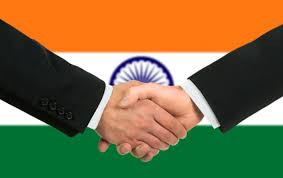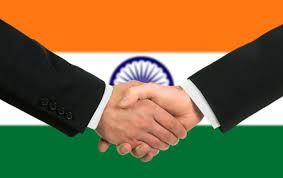
Foreign companies want the incumbent Indian Prime Minister Narendra Modi to soften the protectionist position that the Indian government had taken last year even as they welcomed his election victory because it gives political stability.
A number of large foreign investors have been attracted to invest in India because of the pro-business image of Modi and the youthful population of India which included names such as US firms Amazon.com – the largest e-commerce company in the world, Walmart – the largest retailers of the world and Mastercard. All of these companies have invested billions of dollars and hiring in thousands.
.
For US etch giant Facebook and its sister concern Whatsapp, India is the largest market by number of users.
But according to analysts, a harder, protectionist line on sectors such as e-commerce and technology was taken from around 2017 by Modi who heads a government run by the Hindu nationalist part Bharatya Janata Party (BJP). Analysts said that since then the government had devised some policies that apparently were aimed at invoking a patriotic fervor before the elections.
"I hope he's now back to wooing businesses," said Prasanto Roy, a technology policy analyst based in New Delhi, who advises global tech firms. "Global firms remain deeply concerned about the lack of policy stability or predictability, this has sent a worrying message to global investors."
There have been protests and aggressive lobbying by the United States government, U.S.-India trade bodies and companies themselves, those policies were continued by Modi.
According to Reuters, it had interviewed about 12 a dozen officials of foreign companies in India and their advisers following the win of Modi and they expressed hope that some of the policies would be diluted and Modi would take a softer stance.
There were other investors who wanted the new Modi government to refrain from making sudden changes in policies on investment and regulations that would put the investors in a tough position and prove to be very closely. They in turn urged that any such changes should be taken after an industry-wide consultation so that industries have time to prepare for the changes.
Prem Watsa, the chairman of Canadian diversified investment firm Fairfax Financial, which has $5 billion in India, said protectionism concerns "are small hurdles you have to go through". "There will be more business-friendly policies and more private enterprise coming into India," he told Reuters in an interview.
Global payments companies that had benefited since 2016 from Modi's push for electronic payments instead of cash are among the companies that hoping for more business friendly measures being taken.
However, the Indian government last year asked companies like Mastercard and Visa to store more of the customer data of Indians in India so that it is possible to hold "unfettered supervisory access". It was such a direction that prompted Whatsapp to delay its investment plans for launch of its payment service in India.
The decision of the Indian government in 2017 to put price caps on products such as heart stents and knee implants also hurt companies in the $5-billion medical device industry including names such as Abbott Laboratories, Boston Scientific and Johnson & Johnson.
(Source:www.businesstoday.com)
A number of large foreign investors have been attracted to invest in India because of the pro-business image of Modi and the youthful population of India which included names such as US firms Amazon.com – the largest e-commerce company in the world, Walmart – the largest retailers of the world and Mastercard. All of these companies have invested billions of dollars and hiring in thousands.
.
For US etch giant Facebook and its sister concern Whatsapp, India is the largest market by number of users.
But according to analysts, a harder, protectionist line on sectors such as e-commerce and technology was taken from around 2017 by Modi who heads a government run by the Hindu nationalist part Bharatya Janata Party (BJP). Analysts said that since then the government had devised some policies that apparently were aimed at invoking a patriotic fervor before the elections.
"I hope he's now back to wooing businesses," said Prasanto Roy, a technology policy analyst based in New Delhi, who advises global tech firms. "Global firms remain deeply concerned about the lack of policy stability or predictability, this has sent a worrying message to global investors."
There have been protests and aggressive lobbying by the United States government, U.S.-India trade bodies and companies themselves, those policies were continued by Modi.
According to Reuters, it had interviewed about 12 a dozen officials of foreign companies in India and their advisers following the win of Modi and they expressed hope that some of the policies would be diluted and Modi would take a softer stance.
There were other investors who wanted the new Modi government to refrain from making sudden changes in policies on investment and regulations that would put the investors in a tough position and prove to be very closely. They in turn urged that any such changes should be taken after an industry-wide consultation so that industries have time to prepare for the changes.
Prem Watsa, the chairman of Canadian diversified investment firm Fairfax Financial, which has $5 billion in India, said protectionism concerns "are small hurdles you have to go through". "There will be more business-friendly policies and more private enterprise coming into India," he told Reuters in an interview.
Global payments companies that had benefited since 2016 from Modi's push for electronic payments instead of cash are among the companies that hoping for more business friendly measures being taken.
However, the Indian government last year asked companies like Mastercard and Visa to store more of the customer data of Indians in India so that it is possible to hold "unfettered supervisory access". It was such a direction that prompted Whatsapp to delay its investment plans for launch of its payment service in India.
The decision of the Indian government in 2017 to put price caps on products such as heart stents and knee implants also hurt companies in the $5-billion medical device industry including names such as Abbott Laboratories, Boston Scientific and Johnson & Johnson.
(Source:www.businesstoday.com)





